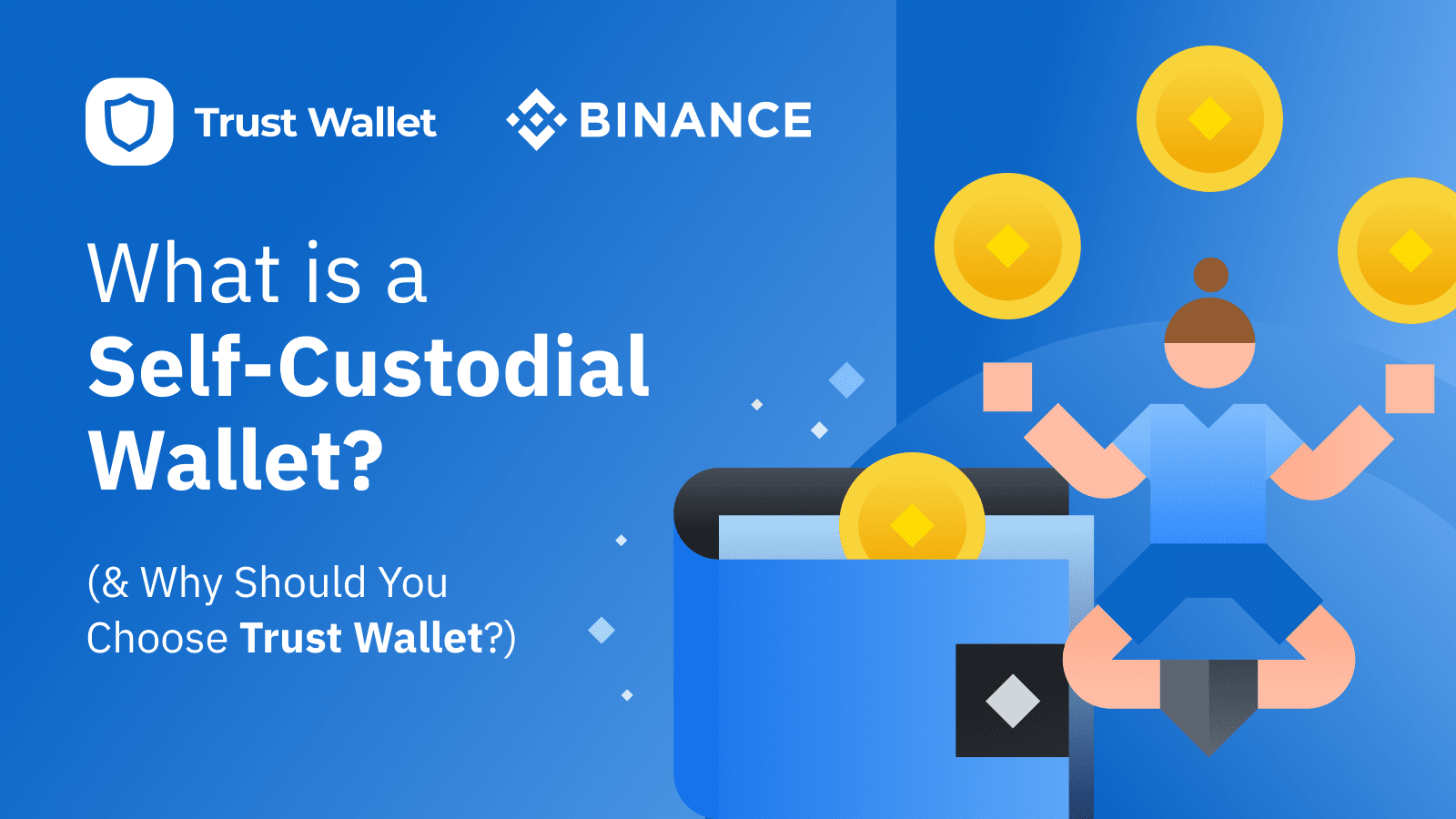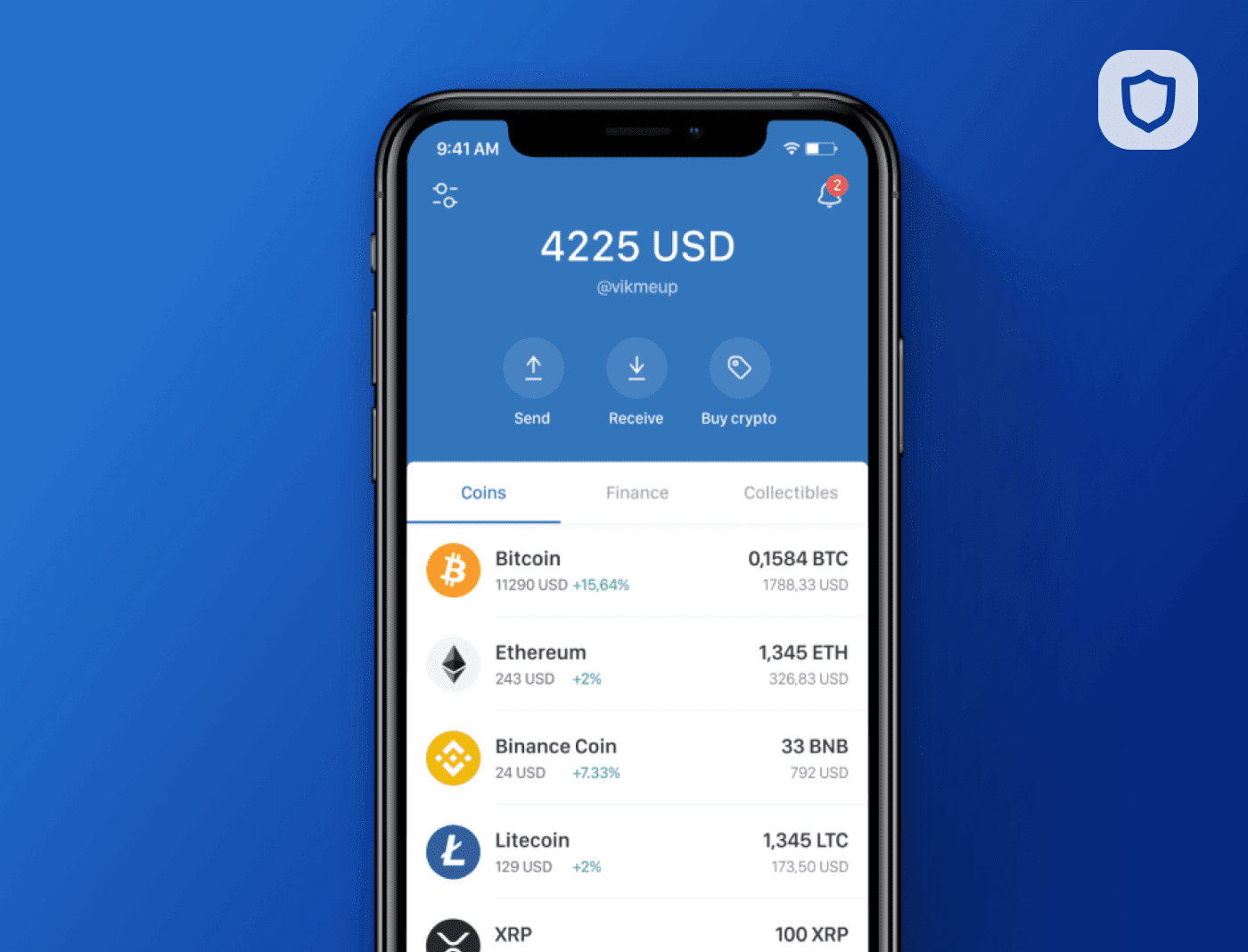What Is a Self-Custodial Wallet and Why Should You Choose Trust Wallet?
Main Takeaways
In crypto, self-custodial means that you hold and fully control your assets. Custodial, on the other hand, means that a third party holds your assets on your behalf.
Self-custodial crypto wallets give users complete control of their crypto assets and private keys.
Custodial wallets are offered by a third party that stores your crypto assets on your behalf. These kinds of wallets are typically easy to use, but the big disadvantage is you don’t have full control over your assets.
Trust Wallet consistently ranks among the top self-custodial wallets available thanks to its ease of use, focus on privacy and security, and multitude of features.

Are you really in control of your cryptocurrency funds as much as you think you are? Just like depositing your money into a bank, the custody of your crypto is with the person or institution that stores it for you.
The concept of cryptocurrency self-custody is more important than ever, especially as accessing the world of web3 and decentralized applications (DApps) becomes more commonplace. Regardless of where you are in the world, if you can’t access your bank account, it can be comforting to know that your crypto is always within reach. To be sure you have complete control over your digital funds and enjoy this peace of mind, you will need to hold them in a self-custodial wallet.
Let’s dive into the topic of self-custodial wallets and why Trust Wallet is arguably the best self-custodial wallet you can use.
What Is a Self-Custodial Wallet?
A self-custodial wallet (also referred to as a decentralized wallet or non-custodial wallet) is a cryptocurrency wallet that gives users complete control of their private keys and funds. Third parties don’t have access to users’ private keys, and the funds held in these wallets are exclusively owned and accessible by the user.
A custodial wallet, on the other hand, holds the private keys on behalf of the user, effectively holding their assets for them. An exchange or another third party could provide you with a custodial wallet service, for example. In that sense, custodial wallets function in the same way as banks. They hold your money, which you can access through them — provided you haven’t broken any rules that could lead to loss of access.
Although self-custodial wallets are, in some ways, more secure than custodial wallets, you need to trust yourself when using a self-custodial wallet. This is because, as a user, you need to store your recovery phrase extremely securely to keep your funds safe. There’s no one to help you if you lose the phrase needed to restore your wallet.
Should you misplace your recovery phrase, you risk losing all your funds.
Now that you know what a self-custodial wallet is, let’s compare the two wallet types to find out which might fit you best.
Custodial vs. Self-Custodial Wallets: What’s Better?
While self-custodial wallets have always been a popular choice, there are still plenty of crypto wallet companies that believe custodial wallets are the better option, especially for new users.
So which one of the two is more suitable for you?
Custodial wallets
Custodial wallets are relatively easy to use, which makes them excellent for newcomers. They essentially function like other online accounts, usually needing a username and password to access. Secondly, users don’t risk losing their private keys or recovery phrases as the wallet company manages the private keys on their behalf. This also means that users don’t risk losing access to their funds by accident. Moreover, you can always recover your account — even if you forget your password.
However, keep in mind that with a custodial wallet, you’re not the one holding your funds. The wallet company holds the private keys, not you, and they ultimately have the upper hand and control your funds. While you may think the chance of a wallet provider freezing your funds is minimal, regulatory changes or accusations of misuse under their terms may affect your ability to access your own funds.
Custodial wallets also typically require users to go through a know-your-customer (KYC) process. You’ll need to consider all the obligations and privacy concerns that come with this, such as handing over your personal data.
Self-custodial wallets
With self-custodial wallets, users always have complete control over their funds and private keys. Your funds and keys are as safe as you manage to keep them. The risk of a data breach leading to loss of funds is highly dependent on your own behavior. In short, all the details, including the private keys, of your crypto wallet rest with you.
This means that you can store your crypto in a highly secure manner that you fully control. This fact also means you can lose all your funds with a self-custodial wallet should you lose or forget your private key or recovery phrase. Overall, this means taking full responsibility over even seemingly unlikely mistakes — such as falling for crypto phishing scams — as they can cost you greatly.
Picking a type of wallet to store your crypto comes down to your personal priorities. Ultimately, it’s important to choose a wallet that will meet your needs.
If you decide to go with a self-custodial wallet so that you have complete control over your funds, read on to learn why Trust Wallet is probably the best pick.
5 Reasons Why Trust Wallet is One of the Best Self-Custodial Wallets

Trust Wallet has proven to be one of the market’s most popular multi-functional, self-custodial wallets.
Why is this the case? Let’s look at five reasons why Trust Wallet offers one of the best self-custodial wallet experiences:
It’s a true multi-chain wallet that supports 68 blockchain networks and millions of different assets. This means you’re virtually guaranteed to be able to store all your various crypto assets in just one wallet.
Only users have access to their private keys. This makes Trust Wallet a highly secure crypto-storage wallet solution.
The wallet itself does not charge any transaction fees. Only blockchain transaction fees apply.
With Trust Wallet, you can easily interact with DApps and store non-fungible tokens (NFTs).
You can stake different cryptocurrencies and earn variable crypto returns all within the Trust Wallet app.
Trust Wallet Users Value Control Over Their Funds
It seems that users are hungry for more control over their wallets and funds, and the number of self-custodial wallet users has been on the rise. If complete control over your crypto assets sounds like something you’d be interested in, then Trust Wallet is a great place to start self-custodial wallets. Crypto is maturing, and more people are developing their blockchain skills and taking control of their assets. This overall trend paints a clear picture of what many cryptocurrency users are after: security and financial sovereignty.